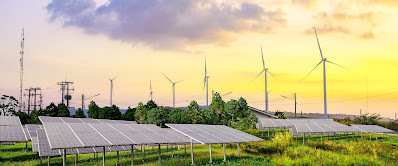Business and industry increasingly adopt IoT to drive sustainability
Business and industry increasingly adopt IoT to drive sustainability
Companies in diverse industries have adapted strategies and accelerated the use of technology to drive their sustainability goals. Internet of Things (IoT) technology is one solution that is attracting attention thanks to the significant efficiencies, cost reduction as well as the reduction of carbon emissions the adoption of the technology delivers.
The solution developed by Vodacom Group subsidiary, IoT.nxt can help organisations achieve energy management savings of up to 10-15% for clients that rolled out its smart office solution, including a reduction in carbon emissions. The smart fleet application’s efficient-route mapping has also proven to increase productivity and reduce labour costs by up to 12%.
“For utilities, smart meters and sensors can track and control energy consumption, as well as detect faults earlier. With this data, solutions can be implemented to conserve energy and introduce alternative energy sources, such as solar power, reducing the energy bill and improving the green credentials of a building,” says Managing Executive for IoT at Vodacom Business, Pavesh Govender.
At its most basic, a digital building integrates technology with the physical aspects of a structure to enhance the user experience and maximise the effectiveness of the space. Everything within the space is connected and automated, to allow for beneficial interactions between the physical and digital systems as well as people and external elements. Vodacom’s IoT connections through electricity smart meters and smart logistics services have enabled carbon savings of approximately 224 004 mtCO2e in the previous year for its business clients.
“The change to smart buildings especially is gaining traction around the world. The global smart buildings market is projected to grow from $66.3bn in 2020 to $108.9bn in 2025. This growth is driven by the emerging trend for eco-friendly, green buildings that provide various smart features. The Covid19 pandemic has also increased the need for better air quality and more effective ventilation in buildings to minimise the virus’ survival rate,” says Zahir Mamojee, Vertical Business Lead Digital Buildings at IoT.nxt.
“Our IoT edge technology makes it possible for companies to achieve full connectivity between all assets without having to replace existing equipment. Not replacing equipment reduces waste and through the data created by monitoring all equipment, the life of existing assets can be extended. Using IoT enables better decision-making, supporting companies’ sustainability goals,” Mamojee says.
“The World Economic Forum stated in a report published when it hosted its Sustainable Development Impact Summit in September last year that ‘it is essential that businesses accelerate technology’. Forward-thinking companies are doing exactly that, and we have seen an acceleration of interest and adoption of IoT solutions,” he says.




Comments
Post a Comment